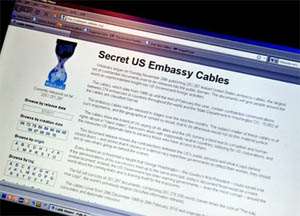
The tacit confidentiality and general goodwill of the diplomatic circuit underpin a unique platform where international problems are solved. Given this framework, even seasoned diplomats are prone to the occasional offhand comment that, when exposed, may upset some other individuals or groups. Such gaffes abound in history: during the post-World War I negotiations in Paris in 1919, racially disparaging comments made by then-French leader Jacques Clemenceau towards Japanese representatives are said to have contributed to the beginning of Japan's subsequent isolation from an international stage where its views and ambitions were deemed inferior.
International dialogue today is not the preserve of trained diplomats; members of the executive and legislature, as well as political party activists, liaise with foreign officials daily, and sometimes the lines between national interest—improving socioeconomic stability and economic development—and narrow political interest—gaining or retaining power—are blurred. The latest Wikileaks documents chronicle comments made by some Ghanaian powerbrokers to American foreign officials on subjects ranging from intra-party politics to more serious issues of national security, some capable of upsetting the country's political apple cart.
While this editorial recognises the right of public and party officials to free speech in their quest for power, these individuals are beholden to temper that right when they discuss potential issues of national security with supposedly neutral foreign officials. Sure, it is okay to think that the chairman of your party is young and immature, so there are plans to replace. And it is reasonable to opine that a certain religious or ethnic demography does not like your party despite your efforts to woo them. But these are assertions that tactful politicians are careful to make only to their political kinsmen. It is almost naïve to divulge sensitive political information to foreign officials whom one views as allies and not expect any negative consequences, especially when these comments are derogatory to certain individuals or groups in one's own country.
The United States is an important friend to Ghana, and it is natural to feel safe in the company of friends. But Washington is an important friend to many other countries in the world, and American friendship is hinged on its own strategic interests. During interaction with major powers, the broader national interests of smaller countries can be left vulnerable when the latter are represented by political players who, in seeking to further parochial interests, see it fit to denigrate opponents for little to no apparent gain, unwittingly compromising national peace.
Perhaps there is a net positive to Wikileaks's putting these documents in the public domain. Now voters know which individuals were keen on overturning the results of the last elections. Ordinary Ghanaians are now privy to plans by some major political forces to merge smaller political parties to benefit the former in the event of a run-off. With fifteen months left until the next elections, significant sections of the country's increasingly savvy electorate would find such knowledge useful. JC
The JulioClaudian Strategy Group offers strategic economic and political analyses. It is named after the dynasty that founded the Roman Empire.
Email: [email protected]




 "I can now see clearly with my two eyes, thanks to the generosity of Afenyo-Mark...
"I can now see clearly with my two eyes, thanks to the generosity of Afenyo-Mark...
 Election 2024: Power outages will affect NPP – Political scientist
Election 2024: Power outages will affect NPP – Political scientist
 NPP is 'a laughing stock' for luring 'poster-stickers', 'noisemaking babies' wit...
NPP is 'a laughing stock' for luring 'poster-stickers', 'noisemaking babies' wit...
 Dumsor: Matthew Opoku Prempeh must be removed over power crisis – IES
Dumsor: Matthew Opoku Prempeh must be removed over power crisis – IES
 PAC orders WA East DCE to process requests from their MP
PAC orders WA East DCE to process requests from their MP
 Defectors who ditched Alan’s Movement to rejoin NPP were financially induced – A...
Defectors who ditched Alan’s Movement to rejoin NPP were financially induced – A...
 Dumsor: Akufo-Addo has taken Ghanaians for granted, let’s organise a vigil – Yvo...
Dumsor: Akufo-Addo has taken Ghanaians for granted, let’s organise a vigil – Yvo...
 April 23: Cedi sells at GHS13.66 to $1, GHS13.07 on BoG interbank
April 23: Cedi sells at GHS13.66 to $1, GHS13.07 on BoG interbank
 GRA clarifies tax status of resident individuals earning income abroad
GRA clarifies tax status of resident individuals earning income abroad
 2024 elections: NDC to officially unveil Jane Opoku-Agyemang as running mate tom...
2024 elections: NDC to officially unveil Jane Opoku-Agyemang as running mate tom...
